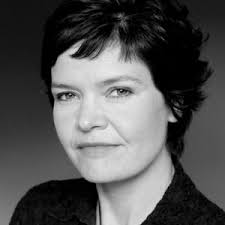
Episode 60: Interview with Kate Raworth, author of Doughnut Economics: seven ways to think like a 21st century economist
In recent years, more and more attention has been paid to how economic theory is divorced from environmental reality, exemplified by how environmental breakdown is often dismissingly referred to as a mere “externality”. In this fascinating interview, we’re talking to self-described renegade economist Kate Raworth about a new economic vision that is firmly grounded in social progress and embedded in the environmental limits of our planetary household.
Images are immensely powerful in shaping our perceptions. Raworth believes that tackling the unsustainability of our economic system requires new images that anchor human wellbeing within environmental boundaries. Raworth proposes an alternative in the doughnut – a safe and just space in which for humanity to survive and thrive in the 21st century. The doughnut, named after its shape, features an outer ecological ceiling with the nine planetary boundaries that humanity must not transgress to maintain a safe and stable environment and an inner ring with twelve crucial social foundations to ensure all of humanity’s peoples can have their human rights met. Doing so provides a compass in which we can redefine economics success.
To this end, Raworth proposes seven different ways of evolving economic theories of the 20th century to meet the challenges of the 21st. In particular, she stresses the limits of GDP-oriented economic growth particularly its great inefficiency in distributing economic gains and the evident flawed thinking of the environmental Kuznets Curve. Rather than get mired in the green growth debate Raworth elegantly navigates the issue by stating that we need to be agnostic about growth. In short, we need to move from economies that need to grow, whether or not it makes us thrive towards economies that make us thrive, whether or not they grow.
The doughnut also reveals the scale of the challenge, as currently no country is living within the doughnut so that “we are all developing countries now”. On a global scale, the picture is equally bleak as four environmental boundaries have been breached and none of the social foundations are being met. Far from being an optimist, Raworth stresses the urgency of the present and how we, the people of the early 21st century, are the first generation to truly understand the extent of damage we are doing to the planet, and the last to be able to do something about it.
Raworth is a Senior Visiting Research Associate at Oxford University’s Environmental Change Institute and a Senior Associate at the Cambridge Institute for Sustainability Leadership. Since Doughnut Economics was published in 2017, it has been translated into 15 languages, and The Guardian has named her “one of the top ten tweeters on economic transformation.”
The post Episode 60: Interview with Kate Raworth, author of Doughnut Economics: seven ways to think like a 21st century economist appeared first on The Sustainability Agenda.

